
2021 General Assembly Report
ACLU of Maryland 2021 General Assembly Report
IMPACTFUL POLICE REFORM IN MARYLAND
 Anton’s Law/MPIA Reform
Anton’s Law/MPIA Reform
For the past few years, the ACLU of Maryland, families impacted by police violence, and our partners in the Maryland Coalition for Justice and Police Accountability have been fighting tirelessly in Annapolis to amend the Maryland Public Information Act to allow public disclosure of records of police misconduct investigations.
Under current law, police misconduct records are personnel records, meaning they are restricted from public disclosure by law. In other words, if you file a complaint of police misconduct, you cannot find out how the department investigates your complaint. All you can find out is the outcome and the discipline.
Finally, in this session, our efforts were successful with the passage of SB 178: Anton’s Law. The bill was named after 19-year-old Anton Black, a young Black man who was killed by police in Greensboro, Maryland after a police chief falsified records to hire a white officer with a proven record of abuse of Black people.
Anton’s Law declares police misconduct records are not personnel records. Thus, it will allow victims of police brutality to know about misconduct via a public information act request. This will better shed light on the quality of misconduct investigations and provide victims with the information they need to achieve justice.
 LEOBR
LEOBR
Enacted in 1974, the Maryland Law Enforcement Officer Bill of Rights (LEOBR) covers two components of the disciplinary process: the conduct of internal investigations that may lead to a recommendation of disciplinary action against a police officer; and procedures that must be followed once an investigation results in a recommendation of discipline. The current LEOBR grants a police officer special due process rights that no other state employee has.
Police reform advocates and impacted families have been calling for a repeal of the Law Enforcement Officers Bill of Rights for decades. In this session, the Maryland Coalition for Justice and Police Accountability made repealing and replacing LEOBR a top priority for the 2021 legislative session. The goal was to minimize the extent to which law enforcement officers have extra due process rights in disciplinary proceedings, create a streamlined system that focuses on the substantive question of guilt or innocence without unnecessary procedural barriers that prevent or delay discipline, and establish community oversight via external oversight bodies that could investigate, adjudicate and impose discipline through local legislation.
In this session, we were successful in repealing LEOBR with the passage of HB 670. However, the General Assembly failed to implement the most important element of police accountability – community oversight. While HB 670 has aspects of civilian participation in the disciplinary process, community oversight means that there is a community-controlled and operated entity that is external to the police department or state-imposed processes that has the power to investigate, adjudicate, and impose discipline.
Furthermore, the General Assembly maintained trial boards which have the final say on police discipline and can overturn decisions made by the administrative charging committee. While the boards are now majority civilian, we fundamentally oppose trial boards as an unnecessary procedural barrier to prevent or delay discipline for police misconduct and abuse.
 Limiting Police Use of Force
Limiting Police Use of Force
SB 71 establishes a statewide police use of force statute for Maryland, which until now was one of the few remaining states without one. Most importantly, this bill raises the legal standard from “objectively reasonable” under federal law to authorize law enforcement officers to use force only when it is necessary and proportional, based on the totality of the circumstances. It also requires officers to de-escalate, cease using force as soon as possible, intervene to prevent excessive use of force, and obtain medical assistance after use of force incidents. While this bill does not include everything we wanted, it is an important step to reduce police killings and excessive force. We will monitor how courts interpret this statute and keep working toward solutions to hold officers and agencies accountable for police violence.
 Local Control of the Baltimore Police Department
Local Control of the Baltimore Police Department
The ACLU along with the Maryland Coalition for Justice and Police Accountability supported a bill to create a pathway to restore local control of the Baltimore Police Department. The bill establishes an advisory board to study potential issues related to the transfer of control of the police department. Additionally, it establishes the Baltimore Police Department as an agency and instrumentality of Baltimore City, rather than the State of Maryland, contingent on the passage of an amendment to the Charter of Baltimore City and the ratification of the amendment by voters.
 Remove School Police and Fund Student Mental Health Resources
Remove School Police and Fund Student Mental Health Resources
As a part of the Maryland Coalition for Justice and Police Accountability (MCJPA), the ACLU advocated for two bills – HB 496 and HB 1089 – that were introduced this session to remove School Resource Officers (SROs) from public schools and reallocate funding to other critical mental and emotional health school staffing supports. The bills did not receive a vote or advance in the House.
There is a diversity of views within the legislature on this issue. Moving forward, we must continue to educate lawmakers on the importance of removing police from schools to secure more support for future passage.
DUE PROCESS FOR CHILDREN IN THE LEGAL JUSTICE SYSTEM
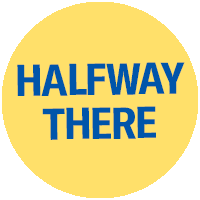 Defending Children’s Right to Remain Silent
Defending Children’s Right to Remain Silent
There is currently no law in place that requires an attorney consultation before questioning a child. During this session, the ACLU and our partners continued progression on HB 315 / SB 136, which would have required an attorney to be present when a child is first interrogated by law enforcement. The bills would ensure that parents/guardians for the child are notified when the child is taken into custody. The bill required amendments to resolve technical issues from the 2020 session.
HB 315 as amended successfully passed the House but did not receive a vote in the Senate Judicial Proceedings Committee.
 Reform of Legal Justice System for Children
Reform of Legal Justice System for Children
The ACLU along with its partners advocated for HB 1187 which would improve the juvenile justice system by raising the minimum age of juvenile court jurisdiction, banning imprisonment of children for low-level offenses, and removing barriers to diversion of children out of the system.
The bill passed the House and was passed favorably with amendments by the Senate Judicial Proceedings Committee, but was stripped of its core components, leaving only the requirement of a supplemental report of the Juvenile Justice Reform Council. Once reaching the Senate floor on Sine Die, the bill was passed unanimously and has become law without the Governor’s signature. Another comprehensive bill will be introduced in the 2022 session.
POLITICS OUT OF PAROLE
 Parole Reform
Parole Reform
The ACLU has long supported reform to our parole system for Marylanders given parole-eligible life sentences. Maryland is one of only three states in the U.S. where the Governor has to approve the recommendations of the Parole Commission before an individual may be paroled. This unusual process injects politics into the parole system and has resulted in very few people being paroled during the last three decades. After a decade-long battle, we were successful in passing SB 202, which eliminates the need for the Governor’s approval of parole. To secure enough votes to override a veto, the bill also required that persons sentenced to life with the possibility of parole after October 2021 serve at least 20 years before becoming eligible for parole (with the application of diminution credits).
Following session, the governor has vetoed this legislation. We will work with General Assembly leadership to override this veto.
ADDITIONAL LEGAL JUSTICE REFORM
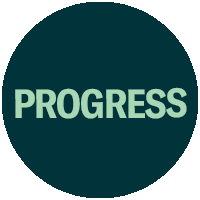 Cannabis Decriminalization
Cannabis Decriminalization
During this session, the ACLU continued to work on a bill to reverse the harmful effects of the failed war on drugs in Maryland.
We supported HB 324 / SB 143, which would have raised the civil possession amount from 10 grams to one ounce of marijuana, bringing Maryland into line with the majority of states that have decriminalized simple possession. In addition, the bill would have addressed an increasing trend in which people in possession of fewer than 10 grams of marijuana are still charged with possession with the intent to distribute – charges most often targeted at Black and Brown people. The bill created a rebuttable presumption that possession of 1 ounce or less of marijuana alone is not enough to charge someone with possession with intent to distribute.
HB 324 successfully passed the House within the first few weeks of the legislative session, but unfortunately, the bill did not receive a vote in the Senate Judicial Proceedings Committee.
 Commissary Reporting
Commissary Reporting
The ACLU continued to push for greater transparency and accountability behind bars this session. We supported HB 100, which would have required the Department of Public Safety and Correctional Services to report the cost of calls and commissary products such as medication and feminine hygiene products. The bill also required Maryland Correctional Enterprises to include in their annual report the demographics of workers and their wages. This bill passed the House, but unfortunately, the bill did not receive a vote in the Senate Judicial Proceedings Committee.
PROTECT IMMIGRANTS IN MARYLAND
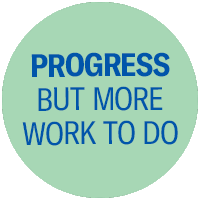 Trust Act
Trust Act
While we made progress with our coalition this session with our immigrants’ rights work, the Trust Act did not pass. Although we feel we had the votes for a veto-proof majority, Senate leadership failed to bring the bill to a vote on the floor. However, they passed another bill that we supported, Dignity Not Detention, which was amended to include extra police protections from Trust. This bill bans private immigration detention centers and prohibits local governments from contracting to house ICE detainees, and also establishes limitations around the harmful 287(g) program.
Although this is an important bill to provide basic protections for immigrants in Maryland, we were disappointed the Trust Act did not pass, and we will keep fighting with our partners until we end the federal 287(g) program everywhere in Maryland.
EXPAND THE VOTE
 Value My Vote Act
Value My Vote Act
The ACLU supported HB 222 which expands access to the ballot for eligible incarcerated voters by requiring the State Board of Elections to adopt regulations establishing a program to inform individuals who are incarcerated in a correctional facility and have the right to vote of upcoming elections and how they may exercise their right to vote. The bill applies to both State and local correctional facilities, including those operated by the Department of Public Safety and Correctional Services, the Department of Juvenile Services, and the sheriff of a county or other unit of government with responsibility for operating a local correctional facility or county detention center.
Under the new law, the regulations must require SBE or local boards to:
- Disseminate information on eligibility requirements to register to vote and voter registration applications to eligible voters in a correctional facility at least 30 days before the deadline to register to vote before each election;
- Disseminate instructions on absentee voting, absentee ballot applications, and absentee ballots before each election in a timely manner;
- Provide frequent opportunities for eligible voters in a correctional facility to register to vote and to vote; and
- Provide for the timely return of voter registration applications, absentee ballot applications, and absentee ballots completed by eligible voters in a correctional facility.
Additionally, the bill requires DPSCS to:
- Provide each individual who is released from a correctional facility with a voter registration application and documentation informing the individual that the individual’s voting rights have been restored;
- Display a sign in each parole and probation office indicating that any individual who is no longer incarcerated has the right to vote; and
- Post a notice on the department’s website indicating that any individual who is no longer incarcerated has the right to vote.
 Central Booking Ballot Drop Box
Central Booking Ballot Drop Box
SB 525 expands access to the ballot for eligible incarcerated voters by requiring the Baltimore City centralized booking facility to provide a ballot drop box that eligible voters incarcerated at the facility may use to submit absentee ballot applications, absentee ballots, and voter registration forms to SBE or a local board of elections.
Under the new law, the Baltimore City centralized booking facility must:
- Disseminate written information about how and when to use the ballot drop box to each eligible voter incarcerated at the facility; and
- Monitor the ballot drop box at all times.
RIGHT TO EDUCATION
 Non-Discrimination in Publicly Funded Schools
Non-Discrimination in Publicly Funded Schools
The ACLU’s efforts to require that every school receiving public taxpayer dollars is prevented from discriminating initially enjoyed broad support with HB 155 / SB 98. An amended version of HB 155 passed the House.
The bill was amended in the Senate Judicial Proceeding Committees with language that weakened the bill’s purpose and removed a key provision of anti-discrimination policy language and a remediation process for discrimination. The amended Senate bill reached the Senate floor but did not receive a second reading.
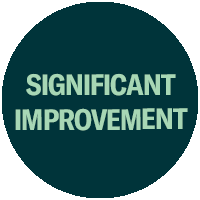 FY22 Budget for Education
FY22 Budget for Education
There has been a large and growing gap in education funding since the legislature and governor cut the state’s education funding formula back in 2008. And since the governor vetoed the sweeping education reform bill Blueprint for Maryland's Future last year, the FY22 budget for education — funding for School Year 2021-22 — could have been disastrous. To ensure that education funding got back on track and that schools would have the resources to address learning recovery due to the COVID-19 pandemic, the ACLU focused on securing additional funding for school districts with the lowest-wealth that have been the furthest from funding "adequacy." Overall, schools will receive approximately $233 million more than they received last year. Here are the highlights of the education budget, contained in HB 588 - Budget Bill:
- Maintains current and expands some "Blueprint" programs: Schools with 80% poverty will continue receiving funding for their community school coordinator and healthcare professional. Schools with 70% poverty have been added to receive funding for these staff positions this coming school year.
- New per-pupil Concentration of Poverty funding will begin phasing in for schools with 80% poverty.
- Additional funding added last year for increased teacher salaries, special education, and tutoring have been maintained at the same level.
- Due to a projected loss in funds triggered by a significant decline in enrollment, $209 million was added to the education budget as a "hold harmless" to ensure districts received more funding than they did last year.
- Slightly increases funding for early learning.
- Over $160 million was added to the budget to address pandemic-related matters, including learning recovery.
ACLU would like to give the Maryland Education Coalition and Maryland Alliance for Race Equity in Education a shout-out for the many hours of work meeting with legislators, testifying at hearings, and promoting our collective priorities.
 Sweeping $4 Billion Education Reform Bill Passes (FY23 and beyond)
Sweeping $4 Billion Education Reform Bill Passes (FY23 and beyond)
At the beginning of the session, the legislature overrode the governor's veto last year of HB1300 - Blueprint for Maryland's Future bill. Meanwhile, the legislature filed HB1372 - Blueprint for Maryland's Future - Revisions to make improvements to the original bill. The ACLU worked to get many of our priorities addressed and overall, we are hopeful that this nearly $4 billion sweeping education reform bill will get education back on track with more provide the funding, programming, and accountability.
Here are the highlights:
- Maintains the "world-class" programs from the original bill: funding for birth to PreK programs, PreK for 3-year olds from families with low-income, universal PreK for 4-year olds, a new college and career readiness pathways, additional funding for healthcare services, socio-emotional learning, and wrap-around services for students who are struggling, increases pay and a new career ladder for teachers, and a new accountability system for tracking the implementation of the bill.
- "Frontloads" funding for the districts with the lowest wealth by speeding up the phase-in of the per-pupil Concentration of Poverty dollars.
- Increases Foundation per-pupil amount by approximately $200 for education technology needs.
- Increases funding for early learning centers (Judy Centers).
- Removes student enrollment numbers for SY20-21 from the formula calculations to mitigate the impact of enrollment decline on funding due to the pandemic.
Funding for the Blueprint is solvent through FY26, however, the legislature failed to pass meaningful and progressive tax reform bills championed by the MD Center for Economic Policy and the Fair Funding Coalition, which would have generated over $1 billion for the Blueprint. The legislature must secure additional funding to ensure that the Blueprint is fully funded.
Overall, the Blueprint is a giant leap forward in terms of fulfilling the state's constitutional guarantee for "adequate" funding for public schools. The ACLU asked the state to provide an "adequacy" analysis of the Blueprint funding formula, however, that amendment did not pass. The ACLU will continue our efforts on this matter in court with our partners at the NAACP Legal Defense Fund under the Bradford lawsuit.
 Federal Funding for Education and Related Issues
Federal Funding for Education and Related Issues
On top of the $207.8 million provided to Maryland public schools through the federal CARES Act last March 2020, the new administration led legislative efforts to pass two additional funding relief bills.
- The Coronavirus Response and Relief Supplemental Appropriations (CRRSA) Act, passed in December 2020, will provide $781 million for schools statewide; including $197.5 million for Baltimore City schools.
- The American Rescue Plan, passed in March 2021, will provide an additional $1.9 billion to Maryland public schools; $443.5 million for Baltimore City schools.
 Closing the Digital Divide
Closing the Digital Divide
Because many students — especially those from families with low-income — statewide do not have access to high-speed internet, the ACLU supported the passage of SB66 - Digital Connectivity Act, which creates the new Office of Statewide Broadband, formerly known as the Office of Rural Broadband. OSB has expanded responsibilities and will provide grants to local governments and nonprofits to increase access to high-speed Internet, assist in the development of affordable broadband Internet infrastructure, and provide digital training to clients. The bill increases an average of $15.3 million per year for fiscal 2023 through 2026. OSB is required to develop a statewide plan by July 2022 to ensure all state residents can connect to reliable broadband internet by December 31, 2026. Federal COVID-19 relief funding also includes $300 million for Maryland to invest in digital connectivity and inclusion of Marylanders, including public school students.
 School Construction Funding
School Construction Funding
State school construction funding has hovered around $300 million annually over the past 12 years, which falls drastically short of the dire need statewide. This year marks the beginning of an additional $2.2 billion investment in school construction thanks to the legislature's override of the governor's veto of last year's HB1 - Built to Learn Act. For FY22, the budget includes a total of $771 million for school construction. Here is a breakdown of funding for all school construction programs, including items in the capital and operating budgets:
- $333 million in revenue bonds from the Built to Learn Act
- $285 million in general obligation bonds and bond premiums through the Capital Improvement Program
- $60 million in general obligation bonds for the Supplemental Capital Grant Program (for districts with significant growth in enrollment and large numbers of relocatable classrooms)
- $70 million in GO bonds and federal funds for the state's Healthy Schools Facilities Fund
- $6.1 million for the state's Aging Schools Program
- $10 million in general funds for the School Safety Program
- $7 million for nonpublic schools for aging schools and safety
- SB551 - 21st Century School Facilities Act and Built to Learn Act - Revisions, supported by the ACLU, improves the process by which the state's Interagency Commission on School Construction (IAC) by prohibiting unreasonable delays in approving projects for funding and will mandate a study of the cost-share formula to ensure changes to local requirements are reasonable.
 Curriculum Bills Focused on Inclusion and Race Equity
Curriculum Bills Focused on Inclusion and Race Equity
The Maryland State Department of Education and local school boards determine the curriculum for public schools. Over recent years, many community members have called for an overhaul of the curriculum to ensure that African American and multicultural content is included and accurately represented in history, social studies, and civics classes. HB140 and SB662 would have established commissions to study and make recommendations on multicultural content for the curriculum. HB11 would have required MSDE to study and make recommendations on content standards for the African American history curriculum. The ACLU, Antiracism for Maryland Schools (ARMS), and Maryland Alliance for Race Equity in Education (MAREE) supported all three bills but none of them were brought for a committee vote.
 School Discipline Data Collection
School Discipline Data Collection
The ACLU and the Coalition to Reform School Discipline supported this bill, which would have required MSDE to publish disaggregated discipline-related data on their website and to report this data annually to the Governor and General Assembly, highlighting schools with disproportionality of discipline and suspensions. The bill was passed to the House but the Senate decided to special order this bill, postponing the vote until the next session.
 Ending Fees for Summer School Courses
Ending Fees for Summer School Courses
Eliminating barriers to tutoring and support services, such as summer school fees, for students from families with low income has long been a priority for ACLU. This bill prohibits a local school system from charging a student a fee for enrollment in a summer school course if (1) the student attends a school in the local school system; (2) credit for the course is required for graduation from a high school in the local school system; and (3) the student previously took the course but did not complete or receive credit for the course. The Coronavirus Response and Relief Supplemental Appropriations ensures that school districts have ample funding for summer learning recovery through 2024.
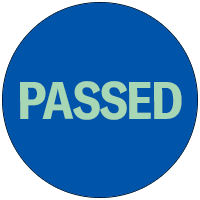 Special Education Learning Continuity Plan Requirement
Special Education Learning Continuity Plan Requirement
SB 300 / HB 714 - Disabled students were among the most severely impacted by the shift to remote learning over the past year. This bill requires that individualized education programs (IEPs) include a learning continuity plan to be implemented during emergency conditions, to ensure that students can continue to learn and progress. It also requires the school district to notify the parent or guardian when a learning continuity plan is activated and seek input from the parent on how best to implement the plan.
 Physical Restraint and Seclusion Reporting and Training
Physical Restraint and Seclusion Reporting and Training
HB 1166 - This bill, supported by the ACLU, would have strengthened requirements for annual reporting to MSDE on the use of physical restraint and seclusion. It would have also required MSDE to develop an accountability system and analyze and publish trends and data and adopt positive behavioral intervention training requirements for school staff. It passed the House but stalled in committee in the Senate.
Related content
